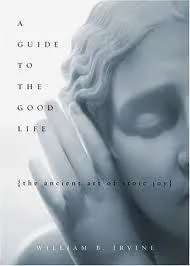1
mention
mention

Stoicism was a philosophical movement developed during the Hellenistic period and later practiced by a number of prominent historical figures, including Seneca and Marcus Aurelius. I was reminded again that this time period saw a flourishing of many competing schools of philosophy with their own ideas about the human condition and their own physical meeting locations to concentrate their followers; these have all but disappeared in the modern times. Human psychology has not changed much on the scale of 2,000 years, making a lot of these schools of thought quite relevant to this day. This work organizes this body of literature into a kind of classical antiquity self-help book. I realized that, without knowing it, I was already following many of the psychological tips and tricks that, according to the stoics, leads to tranquility and the absence of negative emotion. The book goes into much more detail, but among these are negative visualization to fight our psychological natural tendency of "hedonistic adaptation" (the practice of imagining a regression to your living condition along various dimensions to appreciate its presence), projective visualization, active self-denial (e.g. temporary practice of poverty to appreciate wealth), categorization of worries into those you do or do not have control over, which e.g. leads to fatalism w.r.t. the past and the present, meditation (not in the buddhist sense of clearing your mind, but quite opposite a deliberate, intense psychological practice of the above techniques), etc. A little bit too long, a little bit too bloated and repetitive, but good fun. 3/5
— Andrej Karpathy
2022-01-09 on goodreads.com